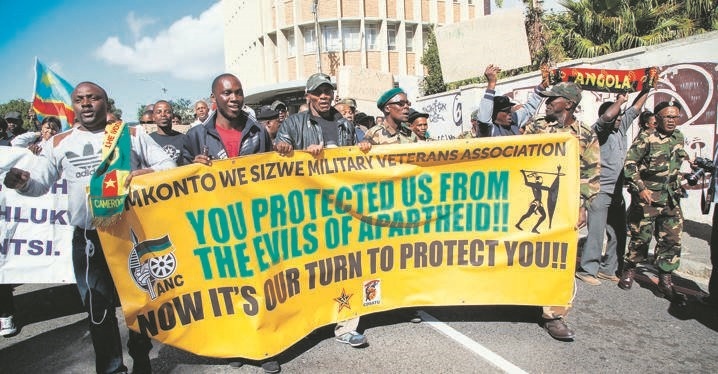
If there was ever a time to discuss xenophobia in South Africa, it is today – because we have not been lynching migrants in the past few months.
Our emotions are at ease.
We have not vented our frustrations about a shrinking economy and political paralysis on our continental brethren.
However, there is a narrative that undocumented African migrants should desist from voicing from now on.
The “we took care of you during apartheid” talk, which gains traction during attacks and gets amplified by lazy commentators, is flawed.
This narrative does not hold when a South African born in 1994 turns 26 years old this year.
He or she could be an unemployed graduate still living with their parents.
To this person, the “we took care of you” line sounds trivial coming from, say, a Zimbabwean migrant of the same age.
Neither of them was around during apartheid, so they did not take care of each other.
It is unacceptable to expect them to settle the debts accumulated by their folks when they are not signatories to their parents’ pre-1994 treaties.
African migrants need to understand that South Africans are not the continent’s brightest citizens.
Just because the country has universal access to education does not mean it produces enlightened people.
There is also the gradual phasing out of history in our school curriculums.
The little that remains is not even South African history, but that of the governing ANC.
There is no emphasis on African history in South African textbooks.
Most migrants in South Africa are not political refugees or beneficiaries of a critical skills work visa programme.
As economic migrants, they become the likes of merchant traders, car guards, waiters, general workers at hotels and domestic helpers.
Countries that played host to political asylum seekers and refugees should explain to their citizens the conditions under which they held thousands of South Africans.
Those still ruled by liberation movements should be honest and admit that South African refugees did not have carte blanche to foray into cities and occupy flats, run shops, open churches and form lobby groups that could picket authorities.
They would not have dreamt of throwing stones at their host countries’ police.
Read: Is it xenophobia? I think not
Umkhonto weSizwe Military Veterans’ Association leader Kebby Maphatsoe allegedly lost his limb while trying to escape from an ANC military camp during the struggle, while not even throwing a stone.
Imagine what would have happened to him had he fired at the Ugandan soldier who mutilated him? Conditions in which most migrants demand to exist in South Africa are simply not feasible.
Today there are thousands of migrants who voice the “we took care of you” narrative, but whose countries, in reality, expelled thousands of South African refugees.
After the 1984 Nkomati Accord – a non-agression pact signed by South Africa’s then prime minister, PW Botha, and Mozambique’s then president, Samora Machel – thousands of South Africans were expelled from Mozambique.
Former president Thabo Mbeki was once detained by police in what was then Swaziland (now Eswatini), after the country had agreed to clamp down on political activity by South Africans there.
In Secret Revolution: Memoirs of a Spy Boss, Niël Barnard writes of a secret intelligence station established by South Africa’s intelligence service in Lomé, Togo, in 1983.
It was set up to monitor refugees and freedom fighters in neighbouring countries.
Barnard reveals that not every African or non-aligned country boycotted South Africa.
This point is emphasised by Hennie van Vuuren in his book, Apartheid, Guns and Money.
Nigeria, Egypt, Kenya, Uganda, Zambia, Malawi, Zimbabwe and other countries had back-door contact with apartheid’s security apparatus.
That tired narrative becomes unsustainable when one thinks ahead to a time when the Rwandan dissidents currently exiled in South Africa form a new government in their country, and poor South Africans start pouring into Kigali under the ruse “we took care of you during your battle against the dictatorship”.
A legitimate question could be: How many documented Rwandans are here to warrant future national culpability for every South African seeking to make a home in Rwanda?
Perhaps a R1.9 trillion question should be: At the peak of South Africa’s refugee crisis (1976 to 1989), how many South Africans were exiled in African countries?
Would it not be reciprocal to proportionately compensate people with a citizenship lottery for each African country, based on the percentage per capita these countries hosted during apartheid?
Not every South African went into exile.
I am for open borders and for not restricting people’s movements.
My argument is that migrants of whatever hue must find 21st-century reasons – rooted in contemporary history, politics and economics – to justify why they should be allowed in, documented and issued with work and study permits, with the prospect of securing temporary residential permits five years down the line.
If I was a migrant, I would base my argument on reasons such as globalisation, Pan-Africanism (even though some countries treated South African exiles badly during apartheid) and forced migration, caused by climate change and the need to build communal bridges.
I would present a humanist argument instead of an entitlement posture that does nothing but inflame the hatred South Africans have for “the other”.
South Africans are the least travelled of the continent’s billion citizens.
The point of view of a fish that lives in an aquarium the size of a soccer ball is limited to its habitat.
Until it makes it to deeper waters, it will believe it is the best fish there is.
Mashego is a writer and political analyst
 | ||||||||||||||||||||||||||
Get in touchCity Press | ||||||||||||||||||||||||||
| ||||||||||||||||||||||||||
| Rise above the clutter | Choose your news | City Press in your inbox | ||||||||||||||||||||||||||
| City Press is an agenda-setting South African news brand that publishes across platforms. Its flagship print edition is distributed on a Sunday. |




 Publications
Publications
 Partners
Partners








